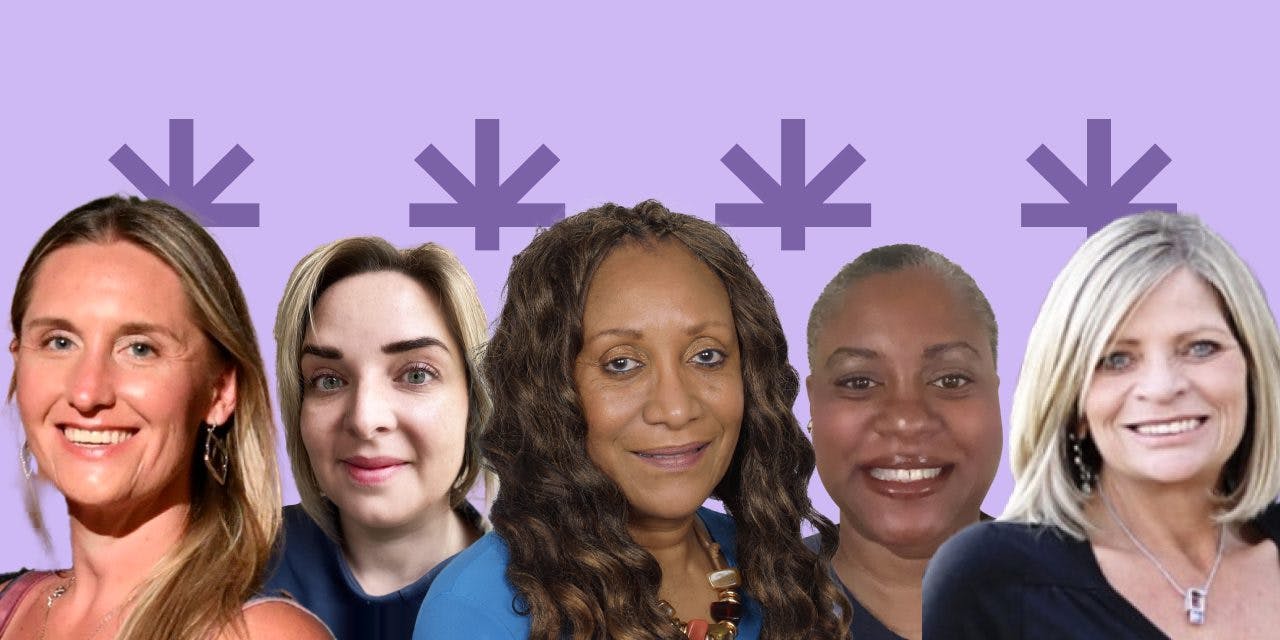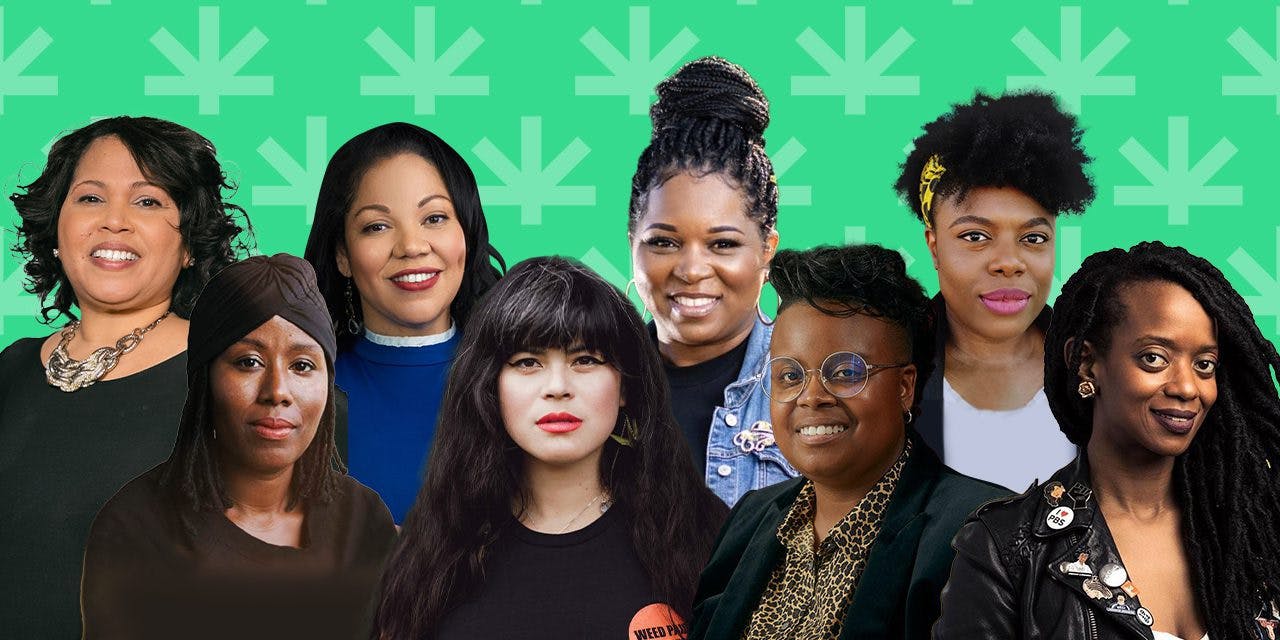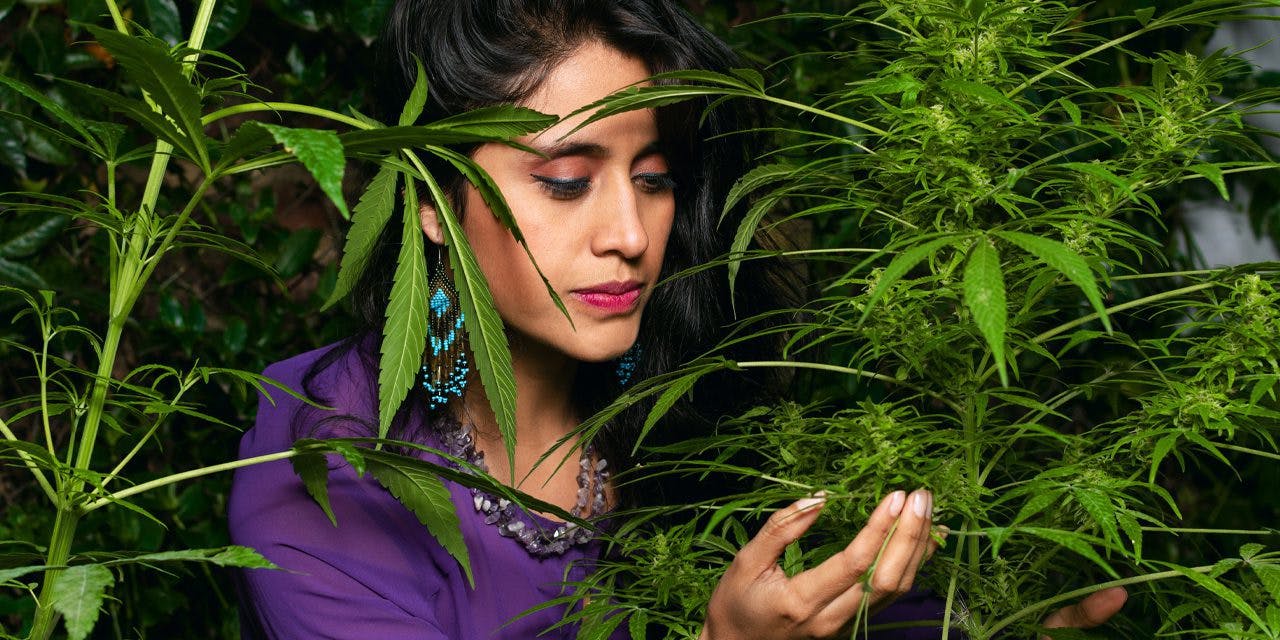Meet Some of Leafwell’s Women Healthcare Providers
Last updated on Oct 7, 2024
Created on Mar 26, 2021

Article written by

Diana FolletteDirector of Patient Success
Content reviewed by

Dr. Lewis Jassey
Leafwell works with a network of experienced healthcare providers who believe in the power of medical marijuana.
We know it can be difficult to speak with your primary care physician about medical marijuana if they’re not open to this alternative medicine. That’s where Leafwell comes in: We’ll connect you with a compassionate, friendly, and knowledgeable provider in your state so you can enjoy your medical marijuana consultation online.
In honor of Women’s History Month, we wanted to introduce you to some of the women you may see if you choose Leafwell to get your medical marijuana certificate.
Get your medical marijuana card
Connect with a licensed physician online in minutes.
Larger purchase limits Access to higher potency strains Save up to 40% on product taxes Enhanced legal protection
Abigail Robinson, PA
Field of expertise: Primary care, geriatrics, and medical cannabis counseling
Based in: Illinois
About Abigail Robinson:
Abigail Robinson has over 14 years of experience combined in primary care, geriatrics, and medical cannabis counseling. She has been with Leafwell since 2021, and her primary practice is located in Chicago, IL.
Robinson has a special commitment to holistic medicine and aims to provide options for patients so they can access medical treatments that suit their individual needs and lifestyles.

Karina Dahlerus, NP
Field of expertise: Plastic and reconstructive surgery, primary care
Based in: Illinois
About Karina Dahlerus:
Karina Dahlerus is an adult gerontology primary care nurse practitioner with 10 years of experience. Originally from Ann Arbor, Michigan, she moved to Chicago in 2007 after completing her undergraduate degree and worked at Loyola Medicine full-time as an RN while pursuing her master’s degree.
She specializes in plastic and reconstructive surgery and has worked with Leafwell since 2021, certifying patients in Illinois and Virginia.

Dr. Deborah Garcia, DNP, FNP-BC
Field of expertise: Nursing practice
Based in: New Mexico
About Dr. Garcia:
Dr. Deborah Garcia graduated from the University of New Mexico’s College of Nursing, obtained a Master of Science in Nursing – Family Nurse Practitioner from the University of St. Francis, and then completed her education with a Doctor of Nursing Practice (DNP).
While working in interventional radiology at the University of New Mexico, she independently provided and assisted with over 7,000 procedures. She worked at the University of New Mexico for 32 years.
Garcia was born in San Diego, California, and has lived in San Francisco, Seattle, and Albuquerque. She is well-traveled but always remembers that Albuquerque is her home.
She has a son and two adorable boxers. She loves to travel and scrapbook.

Dr. Natasha Kelly
Field of expertise: Addiction medication
Based in: Connecticut
About Dr. Kelly, in her own words:
I was born and raised in Jamaica, West Indies, where cannabis was mainly used medicinally in my family for pain, asthma and as a tonic.
As a medical student, I began prescribing Marinol for weight loss and increased appetite in cancer patients. It was alarming to realize cannabis was so stigmatized in the United States. Relative to the side effect profile, medical cannabis is the most benign treatment for chronic pain and behavioral health conditions.
I have been advocating with the DEA to change medical cannabis to a Schedule II drug and to decrease the qualifying condition time period for chronic pain from six months to six to eight weeks. In the future, the over 400 phytocannabinoids contained in medical cannabis, once flushed out, will be the first-line medicine for pain and behavioral health.

Dr. Vanessa Niles
Field of expertise: OB/GYN
Based in:California
About Dr. Niles:
Dr. Vanessa Niles is a recognized expert in medical marijuana patient treatment, education, business consulting, career consulting, and advocacy.
As the co-founder of Leafy Green Agency and founder of Synergy Health, a California medical marijuana practice, she delivers comprehensive cannabis solutions that meet the medical, entrepreneurial, and employment needs of diverse populations. Dr. Niles is a Board Member of the Society of Cannabis Physicians and has worked in multiple cannabis research studies related to anxiety, pain, Alzheimer’s, opioid addiction, and pediatrics.
Her notable work includes an appointment by former President George Bush as an International Medical Ambassador. In this prestigious role, Dr. Niles traveled around the world as a delegate of People to People International (founded by President Dwight D. Eisenhower), participating in medical research and innovative medical approaches through a bilateral exchange with medical professional counterparts in countries around the world.

Get Your Medical Card
Connect with a licensed physician online in minutes.
Larger purchase limits Access to higher potency strains Save up to 40% on product taxes Enhanced legal protection


